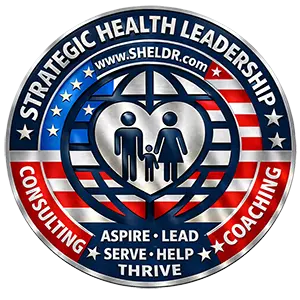Table of Contents
Blip-Zip Executive Summary and Takeaways
Advocating for a balanced approach, West Virginia’s healthcare needs a united voice to navigate the complexities of AI integration. Drawing from history, notably the Oppenheimer movie, AI’s transformative potential in healthcare is underscored. With cautious optimism, stakeholders must prioritize ethical deployment, regulation, and societal considerations to harness AI’s power responsibly.
- United Advocacy: Advocate for a balanced, pragmatic approach to AI integration in West Virginia’s healthcare for improved patient care and operational efficiencies.
- Ethical Considerations: Prioritize ethical deployment and regulation of AI in healthcare to address societal concerns and potential inequities.
- Cautious Optimism: Embrace AI’s potential benefits while emphasizing responsible development, deployment, and regulation in healthcare to mitigate risks and ensure equitable access.
West Virginia Needs A United Voice On Artificial Intelligence AI
West Virginia needs a united voice to advocate for a balanced, pragmatic, and prudent approach to artificial intelligence development and health system integration. AI can improve healthcare personalization, prediction, prevention and provider-patient-payor contact by balancing advancements, opportunities, and concerns. The movie “Oppenheimer,” about the atomic bomb, emphasizes applying history lessons to AI, notably in health care.

Oppenheimer highlights the conflicts between urgency, research, ethics and society’s influence on game changing technology. Stakeholders–legislators, government officials, health care organizations, associations, industry, research, and educational institutions–should responsibly use AI to enhance health outcomes at lower costs with more options by learning from history, especially the pre-and post-World War II nuclear age. Responsible use and transparency can mitigate the risks of AI by learning from the movie Oppenheimer and the atomic bomb.
The Wisdom of Oppenheimer
AI, like the atomic weapon, may collide with government, scientific, open, prudent, ethical and responsible use. Lawmakers at all levels want to curb AI research. Instead of balancing opportunity, the Digital Consumer Protection Commission Act controls huge digital enterprises. Pressure to regulate development may overlook health care issues like AI’s supportive role, ethics, prejudice and beneficial effects. The FDA’s Digital Health Innovation Plan seeks to control AI-driven health devices to close gaps in the 21st Century Cures Act that may limit valuable AI investment, improve clinical decision-making, enhance services, and reduce costs.
The nation and West Virginia should oppose laws limiting AI development out of fear and misunderstanding and support investment, innovation, and AI’s healthcare advantages. We shouldn’t dismiss AI’s biases towards underrepresented groups or its potential to lead to incorrect medical care. While AI is utilized at many healthcare organizations nationwide, including WVU Medicine, caution is urged. AI use is growing, yet studies and clinical trials indicate how machine learning-based tools can lead to inappropriate medical care, and the application of AI as an assistive tool in medical education programs is just beginning.
AI coverage resembles nuclear bomb development: secrecy, sensationalism and politics. A lot of focus has been placed on anti-AI sentiment, deep fakes and AI’s ability to enable criminals. Politicians have portrayed AI as an evil game changer. Experts and lawmakers explored AI’s hazards, security, and ethics, but health care and its concerns were ignored. Media sensationalism instills worry about AI, limiting its development, application and acceptance in health care.
Pockets of AI Innovation in West Virginia
Despite the negativity, AI development and implementation are underway in pockets of innovation. WVU and partners are developing AI, machine learning, and computer vision. Schools are using AI for responsible learning. House Bill 3214 created an AI pilot program to monitor the status of state roads.
At the same time, we must prioritize ethical and social decision-making considerations. WVU Medicine’s AI use seems promising. WVU Medicine acquired AI-supported endoscopy modules for colorectal cancer screening, and robots and AI algorithms improved patient contact and claims resolution. The merits and cons of AI-powered analytics, algorithms, chatbots and personal advisers like ChatGPT are unknown. Health systems using AI should transparently notify providers, patients and payors of expectations.
Cautious Optimism On Use Of AI In West Virginia
AI could generate inequities and unanticipated effects. Without urgency or threat, the film showed how ethics and society should guide human actions. New Mexico nuclear testing displaced vulnerable communities, which WVU may have learned from. AI could improve diagnostics and reduce marginalization if used wisely. The “Bridges in Digital Health” program at WVU addresses health inequities and the aging population’s increase in healthcare needs. AI-driven algorithms may improve health and inequality. Without policies and guidelines, the potential for irresponsible use could proliferate.
West Virginia should advance AI policy, research, and investment, not try it. The 2018-2022 state health plan and DHHR reorganization study don’t explain how AI could improve West Virginia’s health care, public health and mental health systems. A broad stakeholder committee should design frameworks, critical research and development areas, difficulties, and health care AI development.
Conclusion
Understanding the nuclear bomb’s lessons and analogies needs urgent, deep, balanced debate to harness AI’s power in healthcare, especially for West Virginians. This effort can be done without reliving nuclear bomb development lessons in the context of AI. My cautious optimism acknowledges AI’s potential benefits in health care but emphasizes the need for responsible development, regulation and deployment, including ethics, societal concerns and potential inequities.
Deep Dive Questions For Discussion
- How can stakeholders in West Virginia balance the urgency of AI advancement with ethical considerations to ensure responsible integration into the healthcare system?
- What strategies can healthcare organizations employ to transparently communicate the expectations and potential risks of AI-driven healthcare solutions to providers, patients, and payors?
- How can historical lessons, such as those from the Oppenheimer movie, inform ethical decision-making and policy development regarding AI integration in healthcare?
- What role can legislation and regulatory frameworks play in promoting responsible AI development and deployment in healthcare, particularly in addressing societal concerns and potential inequities?
- How can West Virginia’s healthcare system leverage AI to address specific health disparities and improve access to care for underserved communities while ensuring ethical and equitable deployment?
Professional Development and Learning Activities
- Ethical AI Workshop: Host a workshop to facilitate discussions on the ethical implications of AI integration in healthcare, focusing on societal concerns, potential biases, and strategies for responsible deployment.
- Stakeholder Engagement Seminar: Organize a seminar to bring together diverse stakeholders, including legislators, healthcare organizations, industry representatives, and community advocates, to discuss the impact of AI on West Virginia’s healthcare landscape and collaborative approaches for balanced integration.
- Policy Development Exercise: Conduct a policy development exercise where participants draft AI integration frameworks for healthcare, considering ethical, legal, and societal implications, and propose strategies for regulatory oversight and stakeholder engagement.
References
For further reading and research, explore these resources:
- “Artificial Intelligence in Healthcare: Anticipating Challenges and Opportunities” (Journal of General Internal Medicine, 2021)
- “Ethics of Artificial Intelligence and Robotics” (Stanford Encyclopedia of Philosophy, 2021)
- “AI in Healthcare: Promises and Perils” (World Health Organization, 2022)
- “The Digital Consumer Protection Commission Act” (Congress.gov, 2023)
- “The FDA’s Digital Health Innovation Plan” (FDA.gov, 2023)
Read More Here
About the Author
I am passionate about making health a national strategic imperative, transforming and integrating health and human services sectors to be more responsive, and leveraging the social drivers and determinants of health (SDOH) to create healthier, wealthier, and more resilient individuals, families, and communities. I specialize in coaching managers and leaders on initial development, continuously improving, or sustaining their Strategic Health Leadership (SHELDR) competencies to thrive in an era to solve wicked health problems and artificial intelligence (AI).
Visit https://SHELDR.COM or contact me for more BLIP-ZIP SHELDR advice, coaching, and consulting. Check out my publications: Health Systems Thinking: A Primer and Systems Thinking for Health Organizations, Leadership, and Policy: Think Globally, Act Locally. You can follow his thoughts on LinkedIn and X Twitter: @Doug_Anderson57 and Flipboard E-Mag: Strategic Health Leadership (SHELDR)
Disclosure and Disclaimer: Douglas E. Anderson has no relevant financial relationships with commercial interests to disclose. The author’s opinions are his own and do not represent an official position of any organization including those he consulted. Any publications, commercial products, or services mentioned in his publications are for recommendations only and do not indicate an endorsement. All non-disclosure agreements (NDA) apply.
References: All references or citations will be provided upon request. Not responsible for broken or outdated links, however, report broken links to [email protected]
Copyright: Strategic Health Leadership (SHELDR) ©




